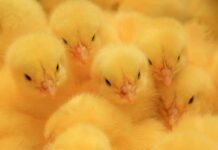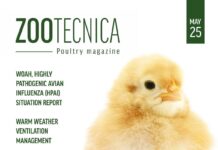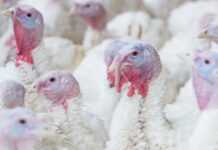
The consequences of an Avian Influenza outbreak are immediate and financially severe. But, with thought and planning, a comprehensive biosecurity program can be easily implemented to help prevent and minimize the impact of potentially catastrophic outbreaks. Stephan Cho, Head of Market Segment Disinfection in the Material Protection Products business unit (MPP), at LANXESS, explains the importance of biosecurity best practice in combating the risk that Avian Influenza poses to the global poultry production industry: “Prevention comes first,” says Cho. “Biosecurity is the only real way of stopping the spread of the Avian Influenza virus onto and around a poultry farm site. Producers need to achieve the highest possible levels of biosecurity, leveraged by good buy-in and compliance from management, their staff and their suppliers.”
As part of their commitment to providing biosecurity advice and support, LANXESS has launched the Virkon 360° Biosecurity campaign, focusing on the key elements of biosecurity best practice for surfaces, equipment, air, and drinking water delivery systems, highlighting their proven and trusted Biosolve heavy-duty cleaners and Virkon disinfectant formulations.
Virkon S broad-spectrum disinfectant from LANXESS has been proven to kill multiple strains of the highly pathogenic avian influenza virus, in the face of organic challenge and varying temperatures, to reflect “real-farm” conditions. In a recent test carried out at Accuratus Lab Services in the USA, Virkon S achieved complete deactivation of the Avian Influenza virus in just 60 seconds, at an excellent in-use dilution rate of 1:200.
Cho highlighted the role that full biosecurity can play against Avian Influenza: “The stakes are high when it comes to disease control, and Avian Influenza is particularly uncompromising. Anyone working with poultry can unknowingly spread the disease. Biosecurity is more than just another procedure to be followed. It’s an on-going philosophy that we must all embody in our daily industry practices. Therefore, selecting the right disinfectant solution that is proven to kill Avian Influenza rapidly is essential.”
Properly implemented protocols can drastically reduce outbreaks
Strong links have been made between the spread of Avian Influenza and transportation of poultry. Any vehicle or equipment that becomes contaminated carries large numbers of infective particles, quickly spreading between different sites, over large distances and across country borders.
Guidelines for effective biosecurity for poultry transportation vehicles include:
- Thorough dry cleaning, washing and then disinfection of all internal and external surfaces of the vehicle and its trailer unit. Use a combination approach to first wash and degrease the vehicle with a heavy-duty cleaner, followed by a high-pressure water rinse, allow to dry and then apply a disinfectant solution with a proven broad spectrum of activity against viruses and bacteria.
- Wash and disinfect wheels and wheel arches at every site entrance.
- Disinfect footwear by use of boot baths before entering the farm.
- Wash hands and / or adhere to a site’s shower-in, shower-out policy.
- Use site specific protective clothing as supplied by the farm.
- Follow the site’s own biosecurity instructions.
- Clean and disinfect vehicles, including the driver’s cab, after each journey, and at the end of each working day.
“Implementing these guidelines help deter the emergence of the disease and, importantly, sets a precedent for high biosecurity on an on-going basis,” concludes Cho.
Read more about LANXESS and their commitment to biosecurity at: www.virkon.com

















